- Home
- Paula Byrne
The Real Jane Austen Page 14
The Real Jane Austen Read online
Page 14
Happy Julia! Unhappy Maria! The former was on the barouchebox in a moment, the latter took her seat within, in gloom and mortification; and the carriage drove off.32
A lesson in driving, a lesson in the art of flirtation: they are much the same thing. Only a writer who loved the whole business of travel could have written an exchange such as this.
Even during her last illness Jane Austen continued to travel. In May 1816, she went to the spa town of Cheltenham in search of a cure. And eventually she took her final sixteen-mile journey to Winchester to place herself under the care of a highly renowned doctor, Giles King Lyford. James Austen lent Jane and Cassandra his family carriage. They were accompanied by Henry and her nephew Edward, who both rode beside them on horseback. Jane was distressed at the sight of the men riding on horseback in the pouring rain. It makes for a poignant picture: the sick woman enduring yet another uncomfortable journey in what must have been great physical pain and suffering, her devoted relations getting soaked as they followed.
Brother Charles, whose own seven-year-old daughter was very ill, had not been alerted to the severity of Jane’s illness. Once he had been informed, he executed his travel plans swiftly: ‘Received a letter from Henry acquainting me with Dear Jane’s illness took a place in the mail for Winchester … Arrived at Winchester at 5 in the morning found my Sister very ill … Rode to Chawton on Henry’s Horse … returned to Winchester on top of the Coach … Jane a little better. Saw her twice and in the evening for the last time in this world … Left Winchester at 1/2 past nine by the Telegraph Coach.’33
But in surveying the travels of Jane Austen we should not leave her on her last sad journey. One of her happiest letters describes her feelings of independence and liberty in London at the time when her literary career was reaching its peak. She rejoices in the experience of being driven unaccompanied around ‘that great Metropolis’ in her brother’s barouche landau, with the top down: ‘I had great amusement among the Pictures; and the Driving about, the Carriage been open, was very pleasant. – I liked my solitary elegance very much, and was ready to laugh all the time, at my being where I was. – I could not but feel that I had naturally small right to be parading about London in a Barouche.’34
7
The Cocked Hat
This cocked hat belonged to Captain John Meadows of the Oxfordshire Militia – Henry Austen’s regiment. In the 1790s, in both Britain and France, a black-coloured bicorne hat was adopted as the uniform of the officer class. The front and rear halves were turned up and pinned together. The shorter front brim was called the cock – hence ‘cocked hat’ – and the longer rear brim was known as the fan. A cockade, typically white, was worn at the front.1
‘I really believe’, says Henry Crawford in Mansfield Park, ‘I could be fool enough at this moment to undertake any character that ever was written, from Shylock or Richard III down to the singing hero of a farce in his scarlet coat and cocked hat.’2 For the fictional rake Henry Crawford, a scarlet coat and cocked hat are the costume of a hero in a farce. For the real-life Henry Austen, the brother to whom Jane grew closest, it was the uniform of a soldier. One can readily imagine Henry Austen proudly showing his Oxfordshire cocked hat to his sisters Jane and Cassandra.
Most of Jane Austen’s adult life was lived against the backdrop of war. ‘The profession, either navy or army, is its own justification. It has everything in its favour: heroism, danger, bustle, fashion. Soldiers and sailors are always acceptable in society. Nobody can wonder that men are soldiers and sailors.’3 Just as Frank’s and Charles’s careers were instrumental in shaping the naval background to Mansfield Park and Persuasion, so Henry’s military associations had a subtle impact on his sister’s literary career.
Henry Austen did not enlist with the regulars. The regular army was typically used for service in the colonies. One recalls Colonel Brandon in Sense and Sensibility, serving in the East Indies. Henry, like many men from the gentry, joined the militia. They were essentially the reserves, the Home Guard, the equivalent of the modern Territorial Army in Britain or the National Guard in the United States. They frequently incurred a poor reputation for dancing and drinking in the towns where they were quartered. Wickham in Pride and Prejudice has joined his corps expressly for ‘the prospect of constant society, and good society’.4
Jane Austen danced with redcoats from the South Devons at the Basingstoke Balls. They were often stationed in towns during the winter, moving to coastal camps for the summer months. She also knew the Surrey Regiment, of which her fictional Captain Weston from Emma was a member. Redcoats were attacked by Mary Wollstonecraft in A Vindication of the Rights of Woman (1792), where she warned about the dangerous attraction of military men for young women: ‘nothing can be so prejudicial to the morals of the inhabitants of country towns as the occasional residence of a set of idle superficial young men, whose only occupation is gallantry’.5
Much as they were criticized, the militia performed a vital role in protecting the home front from foreign invasion. Austen’s militia novel Pride and Prejudice drew on Henry Austen’s experiences with the Oxfordshire Militia, such as his posting with them to Brighton. Elizabeth Bennet’s younger sister envisages the soldiers setting up camp in that famous resort:
In Lydia’s imagination, a visit to Brighton comprised every possibility of earthly happiness. She saw, with the creative eye of fancy, the streets of that gay bathing place covered with officers. She saw herself the object of attention, to tens and to scores of them at present unknown. She saw all the glories of the camp; its tents stretched forth in beauteous uniformity of lines, crowded with the young and the gay, and dazzling with scarlet; and to complete the view, she saw herself seated beneath a tent, tenderly flirting with at least six officers at once.6
Wickham, we are told ‘wanted only regimentals to make him completely charming’.7 He tells Elizabeth Bennet that ‘a military life is not what I was intended for … The church ought to have been my profession.’ Jane Austen may have been drawing on her brother Henry’s experiences here, as he, too, was destined for the Church until the outbreak of war in 1793.
Henry Austen has acquired a reputation as a rather brilliant but unstable, mercurial character. His change of career from soldier to banker to clergyman and his various failed money-making schemes have all added to this somewhat unfair picture of his hopelessness. His niece, Anna Lefroy, summed him up succinctly: ‘Brilliant in conversation, and like his Father, blessed with a hopefulness of temper, which, in adapting itself to all circumstances, even the most adverse, seemed to create a perpetual sunshine of the mind. The Race is not however always to the swiftest … and though so highly gifted by Nature, my Uncle was not prosperous in life.’8
The phrase ‘perpetual sunshine of the mind’, even in adverse circumstances, encapsulates Henry Austen’s particular charm. ‘Oh! what a Henry,’ his sister Jane wrote about him upon hearing that he had gained entrance to a grand society ball in 1814 to celebrate the victory over the French.9 There is something amused but exasperated in her exclamation. The family view seems to have been that brilliant, amusing Henry had not fulfilled his potential. As well as being tall and handsome, he was cultivated and literary, as his contributions to the Loiterer show. He later became in effect Jane Austen’s literary agent. Henry’s eldest brother, James, inherited Steventon and brother Edward was adopted into a wealthy family, but Henry had to make his own way in life. In 1816 he wrote to the Bishop of Winchester and explained why he had abandoned the Church in his early years: ‘Soon after taking my degree … I not being old enough for ordination, and the political circumstances of the times 1793 calling on everyone not otherwise employd to offer his services in the general defence of the country, I accepted a Commission in the Oxfordshire Militia.’10 Although Henry had no land, being the son of a respectable clergyman he was taken on as a ‘Gentleman to be Lieutenant’.
He was first posted to Southampton. The Oxfordshire’s task was to escort a thousand French prisoners of
war to Stapleton Prison near Bristol. Late that summer of 1793, the Oxfords were assigned to Brighton. We don’t know Jane Austen’s whereabouts in that year, so there is no way of knowing whether she visited him in the resort she uses as the scene for Lydia’s elopement with Wickham.
Then in 1795 Henry was appointed acting Regimental Paymaster. Up to £15,000 could pass through his hands in a year. Henry’s promotion was great testament to his trustworthiness and competence. The winter of 1794–5 was long and cold. The Oxfords were in barracks at East Blatchingford, near Brighton. The conditions there were appalling, as the buildings were unfinished and many necessities such as cooking houses and hospital facilities were lacking. Henry asked for and was granted two months’ leave to continue his studies at Oxford. In his absence, a serious riot took place among the men of his militia. It made headline news and caused great damage to the reputation of his regiment. In time of war, mutiny in the ranks was the worst fear of the government.
The crop failures of the previous year, due to bad weather and poor harvests, led to food shortages and high prices. That year the Prime Minister William Pitt the Younger even put a tax on hair powder, which was made from wheat and considered to be wasteful in wartime. A number of food riots occurred, where mobs seized flour or bread, sometimes damaging or destroying mills or bakeries. Anxiety about the revolution in France meant that the authorities were more concerned than usual, and were ready to take a tough line. Increasingly, magistrates would call upon the militia or even the regular army to help restore order.
Things came to a head in April 1795. Henry was sent a message at Oxford, instructing his immediate return to his regiment. He pleaded illness. A note appeared against his name on the muster call: ‘Austen, sick at Oxford’.11 On Friday 17 April four hundred men left their barracks in Blatchingford and marched ‘in a disorderly manner’ to nearby Seaford and Newhaven. All the flour and other food that could be found was seized by the insurgents and sold at reduced prices to the poor. The riots lasted for two days. Ale was freely distributed and officers tried unsuccessfully to regain order.
Finally, a battery of the Royal Horse Artillery was set up on the hills overlooking the town. They fired shots to warn the rioters of their presence. A detachment of the Lancashire Regiment of Fencible Dragoons then rode into town and captured the mutineers.
The authorities considered disbanding the regiment, but it was finally decided to disarm them and make an example of the ringleaders. Ten thousand soldiers (including Royal Artillery, five militia and three fencible regiments, as well as the 12th Light Dragoons) were marched to Goldstone Bottom, Hove, to witness the executions – and help keep the peace, since the Sussex people were highly sympathetic to the prisoners in the light of their distribution of bread to the poor. On 13 June, the punishments were carried out. Of the six to be flogged, two were pardoned, one remanded into custody and the other three received 300 lashes each. One man was transported to Australia. Edward Cooke, a former blanket weaver, and Chipping Norton’s Sam Parish were condemned to death. The day before the execution, Cooke wrote to his brother: ‘I am going to die for what the regiment done. I am not afraid to meet death for I have done harm to no person and that is a great comfort to me.’12
Though he had been absent when the riot took place, Henry Austen was among the thousands of soldiers who watched as the men were executed by firing squad. Cooke and Parish were first made to witness the floggings. Then they were forced to kneel on their own coffins and were shot by ten comrades, who had been selected from among the other mutineers. The audience of soldiers marched around the bodies. The High Sheriff of Sussex noted down an eyewitness account of the ‘poor fellows’: ‘I am just returned from the ground where two soldiers were shot this morning, about quarter past eight. One of them knelt down upon one coffin and one upon the other, and they both instantly fell dead. Though left there, lest there be any remains of life, a firelock was left close to the head of each immediately after.’13
The news was widely reported and Jane Austen would have been well aware of the incident. As with the Mount Street riots, witnessed by Eliza de Feuillide, the press drew comparisons with the revolution in France, as echoed in Northanger Abbey in Henry Tilney’s ‘streets of London flowing with blood’ speech.
That summer, Henry Austen was back with the Oxfords at Sheerness Camp. They underwent an intense period of drill and training, aimed at restoring discipline and credibility: ‘no care shall now be wanting to restore the good Order and Discipline of the Regiment, trusting that before long it will retrieve its lost Character, and recover from the Disgrace under which, by late Misconduct, it now deservedly lays’.14
In Nottingham in the same year, 1795, there were bread riots that were put down by the 12th Dragoons. In Northanger Abbey, the rake Frederick Tilney is one of the raffish Prince of Wales’s Regiment, the 12th Dragoons – ‘the hope of the nation’ as Austen drily remarks, ‘called up from Northampton to quell the insurgents’.15 There was indeed a cavalry barracks built at Northampton. It is a mark of Jane Austen’s realism that in writing about Frederick Tilney’s army career she is highly specific about military leaves of absence. Frederick is on leave in March, but this was the month during which all army leaves expired, so in a letter dated early April Isabella duly writes that Frederick ‘went away to his regiment two days ago’.16
Jane Austen wrote her first version of Pride and Prejudice (‘First Impressions’) in 1797, exactly at the time when her brother was firmly ensconced in military life. Her detailed knowledge of the army may well have been derived from his experiences. The presence of the militia, which enlivens the dreary countryside and the romantic lives of the young women, is brilliantly captured. The details of the soldiers dancing and flirting at the balls, the young private who is flogged, the cross-dressing antics of the young Bennet girls’ favourite redcoat, Denny, the decampment to Brighton in the summer months: all would have elicited a smile of pleasurable familiarity from Henry when he read the book. At the end of the novel, the unscrupulous rake Wickham plans to quit the militia to go into the regulars: ‘He has the promise of an ensigncy in General —’s regiment, now quartered in the North.’17 It cost somewhere in the region of £500 to buy such a commission and Mrs Gardiner informs Elizabeth that Mr Darcy has paid for it.
Henry Austen planned to leave the militia and enter the regulars. He first planned to purchase the Adjutancy of the Oxfordshire Regiment, a senior administrative role. But, lacking the necessary financial backing, he entertained hopes of joining the regulars. He told Jane of his plans, and she duly informed Cassandra:
Henry is still hankering after the Regulars, and as his prospect of purchasing the adjutancy of the Oxfordshire is now over, he has got a scheme in his head about getting a lieutenancy and adjutancy in the 86th, a new-raised regiment, which he fancies will be ordered to the Cape of Good Hope. I heartily hope that he will, as usual, be disappointed in this scheme.18
Again, there is that tone of exasperation. This is another of Henry’s failed ‘schemes’ and Jane is heartily grateful that he is not to be shipped off to the heat and disease of the colonies.
Soldier, banker, clergyman: Henry Austen
One of the reasons why he may have been attracted to the regulars was to get over his heartache. Henry had renewed his love interest in cousin Eliza, who rejected his proposal of marriage around 1795. A year later, with his usual capacity to overcome adversity, he was engaged to a Miss Mary Pearson. But he carried on visiting Eliza whenever he was in London and by October the engagement to Mary was off. Following a couple of important promotions, Eliza was writing letters to Phylly Walter full of news of Henry. Having previously thought that his brother James might make the better match, her favour seemed to be turning towards Henry. His abandonment of the Church and the potential for promotion in the army played a part – after all, her first marriage had proved her love of a soldier. Eliza was delighted at his prospects: ‘Captn. Austen has just spent a few days in Town; I suppose
you know that our Cousin Henry is now Captain, Pay Master, and Adjutant … I believe he has now given up all thoughts of the Church, and he is right for he certainly is not so fit for a Parson as a Soldier.’19 The foreshadowing of Mary Crawford and Edmund Bertram in
Mansfield Park is hardly coincidental. The beautiful coquette begs the younger son to quit ordination for the army: ‘I am just as much surprised now as I was at first that you should intend to take orders. You really are fit for something better. Come, do change your mind.’20
By 1797, Eliza and Henry had grown closer and she finally agreed to marry him. She wrote to her godfather, Warren Hastings, to tell him the good news: ‘the excellence of his Heart, Temper and Understanding, together with his steady attachment to me, his Affection for my little Boy … have at last induced me to an acquiescence which I have withheld for more than two years’.21 Jane’s little fantasy in Volume the First of the union of ‘Henry and Eliza’ had turned to reality.
To Jane Austen’s delight, Eliza retained her coquettish manner. Though she professed to have ‘left off trade’ (her expression for flirtation), she adored male attention and still loved to shock prudish Phylly: ‘if I was married to my third husband instead of my husband I should still be in love with him … alas he is married as well as myself’.22
She firmly believed that the marriage to Henry was a success because he bowed to her strong will, ‘to say nothing of the pleasure of having my own way in every thing, for Henry well knows that I have not been accustomed to controul and should probably behave rather awkwardly under it, and therefore like a wise Man he has no will but mine, which to be sure some people would call spoiling me, but [I] know it is the best way of managing me’.23 She called Henry by his name: ‘I have an aversion to the name Husband and never make use of it.’24

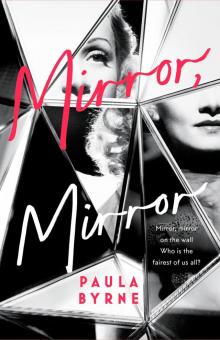 Mirror, Mirror
Mirror, Mirror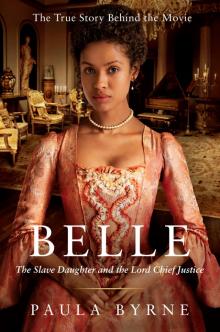 Belle
Belle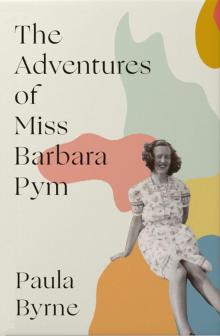 The Adventures of Miss Barbara Pym
The Adventures of Miss Barbara Pym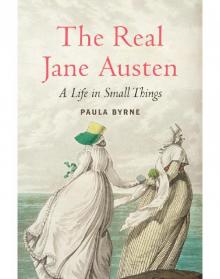 The Real Jane Austen
The Real Jane Austen Look to Your Wife
Look to Your Wife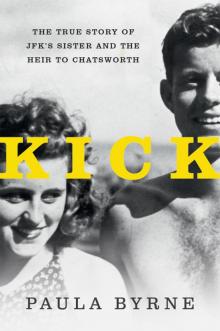 Kick
Kick Perdita
Perdita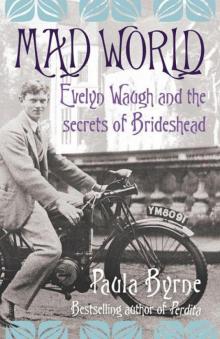 Mad World: Evelyn Waugh and the Secrets of Brideshead (TEXT ONLY)
Mad World: Evelyn Waugh and the Secrets of Brideshead (TEXT ONLY)